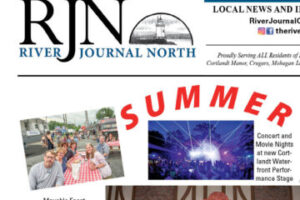Talking fast, moving quickly, the tempo of New York is never slow. New Yorkers are impatient; standing still wastes time, maybe even wastes money. Doing things quickly seems to be the rhythm of choice in our metropolis.
Stand still on Broadway and you’ll be crushed. Speak slowly in New York, and no one listens… or do they?
We New Yorkers think the measure of intelligence, even of success, lies in the rate we use to negotiate through life. Where does this come from? And is it true? Does speaking quickly really help us convey authority? Or is it an invitation to poorly articulated speech with the ends of words dropped, and our exact meaning sometimes left to the listener’s speculation?
People often ask me: how can I speak more effectively? How can I sound more convincing? How do I make the best presentation, shine in an interview? Invariably, I have three pieces of advice: slow down, emphasize the most important words and speak clearly. Sound easy? Not if you rush through life.
Let’s take the first piece of advice: slow down. I frequently hear concerns like, "If I speak too slowly, no one will wait for me to finish." In truth, the extra second or two you use to slow your rate will probably not even be noticed by anyone, but it will give you valuable time, in some cases critical time, to plan what you want to say. This ability to speak spontaneously is a gift we humans possess, but we strain that ability by speaking as quickly as we think, and sometimes mispronouncing or even using the wrong words. If you want to be convincing, plan what you want to say, or at least give yourself the time to string the best words together, add rhythm and inflection, and say the sentence properly. Put that way, perhaps it sounds like a lot to do. Well, it is. And if you expect to do it as fast as the average radio announcer who races through a fifteen or thirty-second sound bite, you have an even bigger challenge.
The next piece of advice: emphasize the important words. Why are some politicians and public speakers more convincing than others? Placed on a printed page, the words might not hold so much sway, but when spoken aloud, those words move you to vote for a particular individual or endorse their projects. Why? Because these speakers know how to phrase their words and emphasize the critical ones so you fully understand their meaning. In order to emphasize individual words, you need to go back to the first piece of advice: slow down. Time is your ally when you speak. Time allows you to pause and stress a word or phrase, making your message more effective, whether it’s directed toward one person or an entire room.
And the last piece of advice: speak clearly. What will help you do that? You guessed it — time again. One trick to produce polished speech is to say the final consonants — that final "t" or "z" for example, and to articulate all the syllables, especially the last one in a long word. Whether someone speaks with a regional accent from the Northeast, or the South, or the Mid-West, does not matter so much as speaking clearly. None of the regional differences in English spoken all over the United States impedes clarity; it is, rather, poor diction, dropped syllables, or distorted sounds, often occurring because the person speaks too quickly. Some people will consistently distort vowel or consonant sounds, producing speech that doesn’t sound right. Even those errors can be helped by talking more slowly, allowing time to properly execute the movements of the mouth necessary for clear speech.
If that’s all it takes, why don’t we all speak as well as we would like? Broadcasting on radio and television certainly doesn’t help. Hearing news in sound bites adds to our sense of urgency: events cut down to rapidly spoken pieces of information. But perhaps we New Yorkers fundamentally believe that nothing is worthwhile unless it’s done quickly. I suggest that we sing our "Lullaby to Broadway" at a slower tempo and it will sound so much better.
Gloria Lazar is a communications specialist and has a private practice in Tarrytown. LazarSpeech@aol.com






